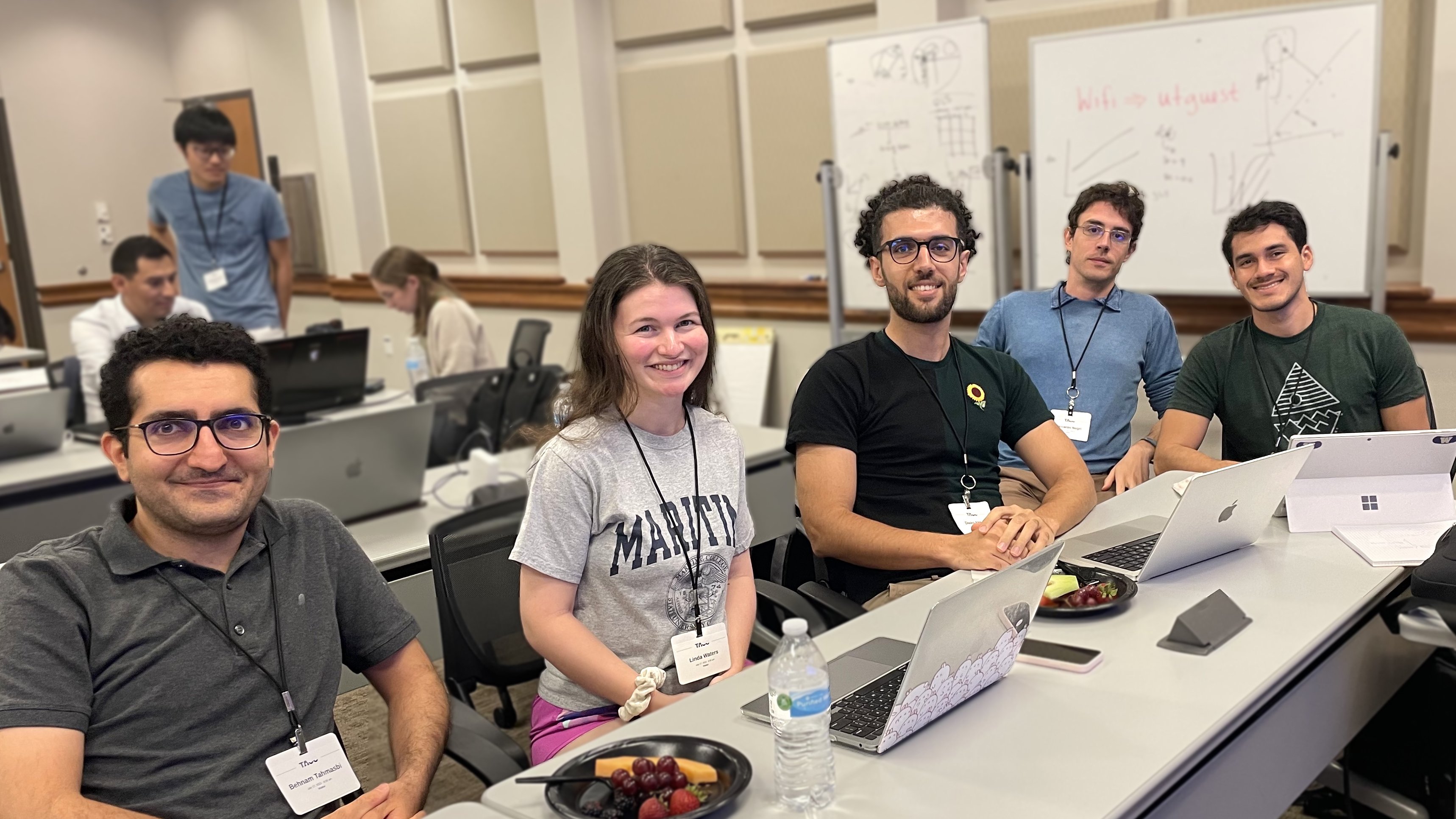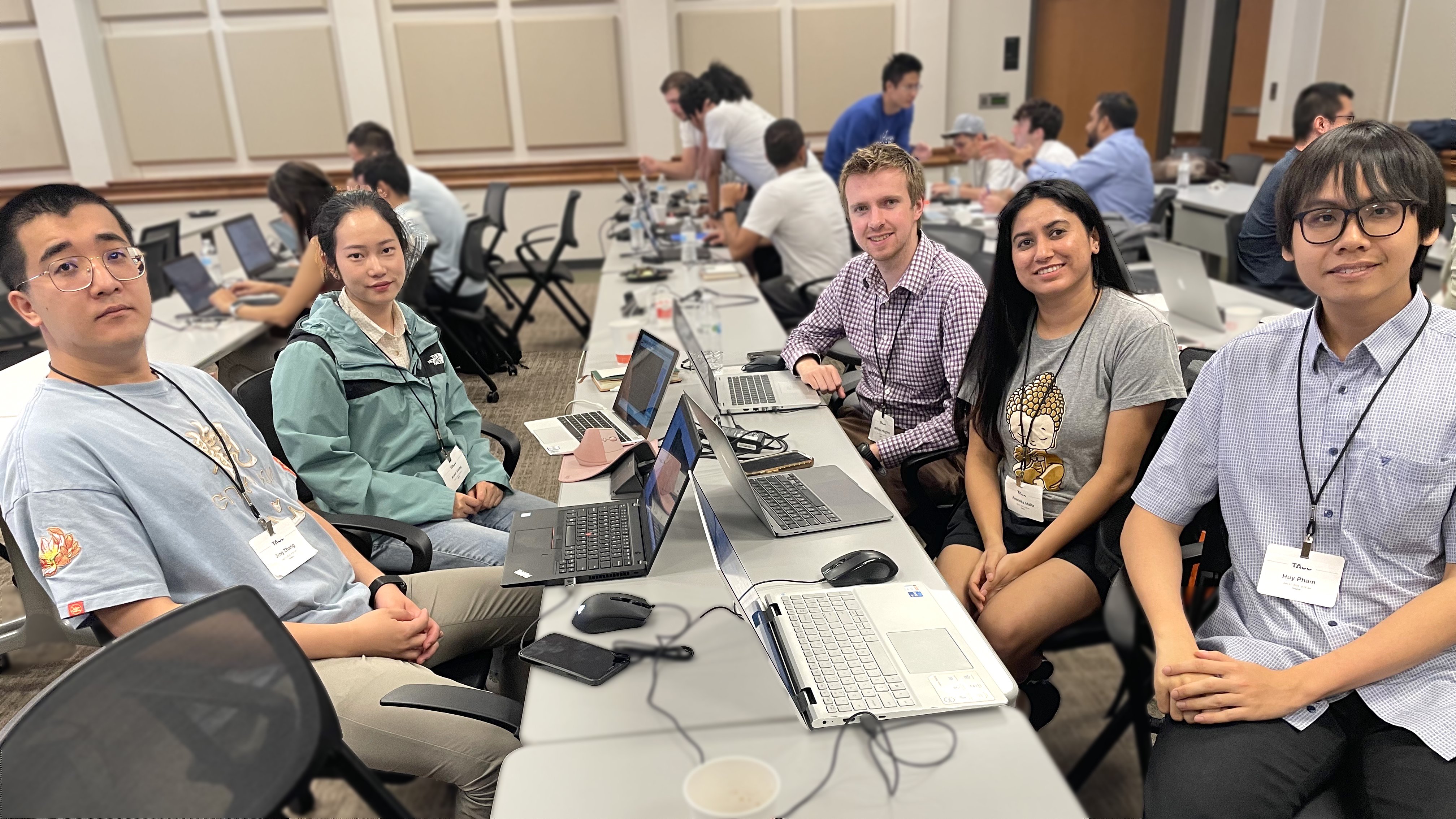NHERI Computational Academy Wrap Up
Published on August 8, 2023
The NHERI Computational Academy, hosted by DesignSafe and SimCenter, was held on July 17-20, 2023, at the Texas Advanced Computing Center at the University of Texas at Austin. The Computational Academy trained participants on DesignSafe resources and SimCenter application tools to empower them with skills to facilitate their research. The event was at capacity with a waiting list, and most attendees were students early in their Ph.D. studies, with a few early career faculty and an early career practitioner.
The participants formed seven teams and applied their training to solve real-world problems in natural hazards engineering. The teams were mentored by DesignSafe and SimCenter domain experts to address different projects provided by DesignSafe and SimCenter.
After an intense 3-1/2 days of work, the teams presented their work in person and online to the broader NHERI community. Dr. Joy Pauschke, NSF Program Director, attended online and commended the teams for their hard work, and she acknowledged the collaboration between DesignSafe and SimCenter to provide useful training to the NHERI community. The teams were judged on the following criteria: innovation, team collaboration, presentation, use of DesignSafe and SimCenter tools, and re-usability of the project on DesignSafe/SimCenter (e.g., publishing project, well-documented notebook, python package, etc.). Two winning teams were selected, and details of their projects are below. One of the winning teams tackled the academy's first wind engineering project. These projects can be accessed from the DesignSafe Data Depot in the next few weeks.
Winning Teams

TEAM 1, "Steve Harvey on Speed Dial"
- Behnam Tahmasbi
- Linda Waters
- Diako Abbasi
- Riccardo Negri
- Daniel Acosta-Reyes
MENTOR:
Pranavesh Panakkal, Rice University
PROJECT:
Identifying inequity in situational awareness data during flooding to facilitate equitable emergency response and recovery
SUMMARY:
Situational awareness data inequity could translate to inequitable emergency response and recovery assistance. This project will collect historical community flood reports and contextualize them with sociodemographic and flood inundation data to quantify and visualize situational awareness data equity during a past flood event in Houston. Insights gained during this project will enable inequity-aware emergency response and recovery strategies and promote long-term community resilience.

TEAM 5, "Whirlwind Warriors"
- Jing Zhang
- Xuan Xiang
- William Hughes
- Anamika Malla
- Huy Pham
MENTOR:
Abiy Melaku, UC Berkeley
PROJECT:
Mitigating wind loads on tall buildings by aerodynamic shape modification: CFD-based comparative case study on a landmark skyscraper.
SUMMARY:
Wind-induced excitation of tall buildings is a critical design consideration, especially for dynamically sensitive tall buildings. One way to reduce wind loads is to modify the building's shape to alter its aerodynamic signature. This project demonstrates the use of Computational Fluid Dynamics (CFD) to explore mitigation measures by introducing openings at different locations in the building. A landmark skyscraper in downtown Manhattan is used as a case study to simulate several test configurations for comparison with the base case. The training will use the SimCenter WE-UQ tool, which has advanced CFD capability for steady state and transient simulations.





